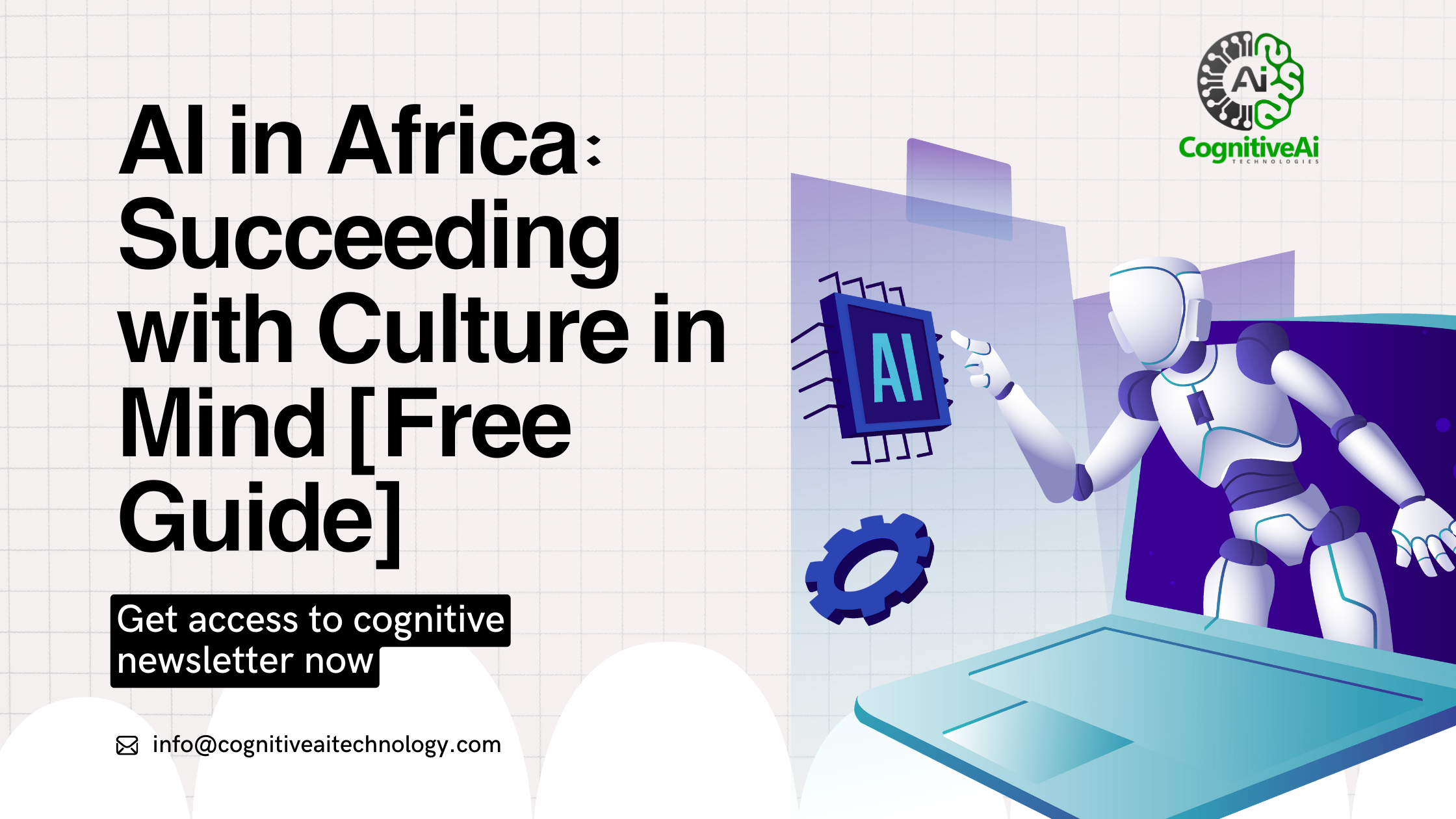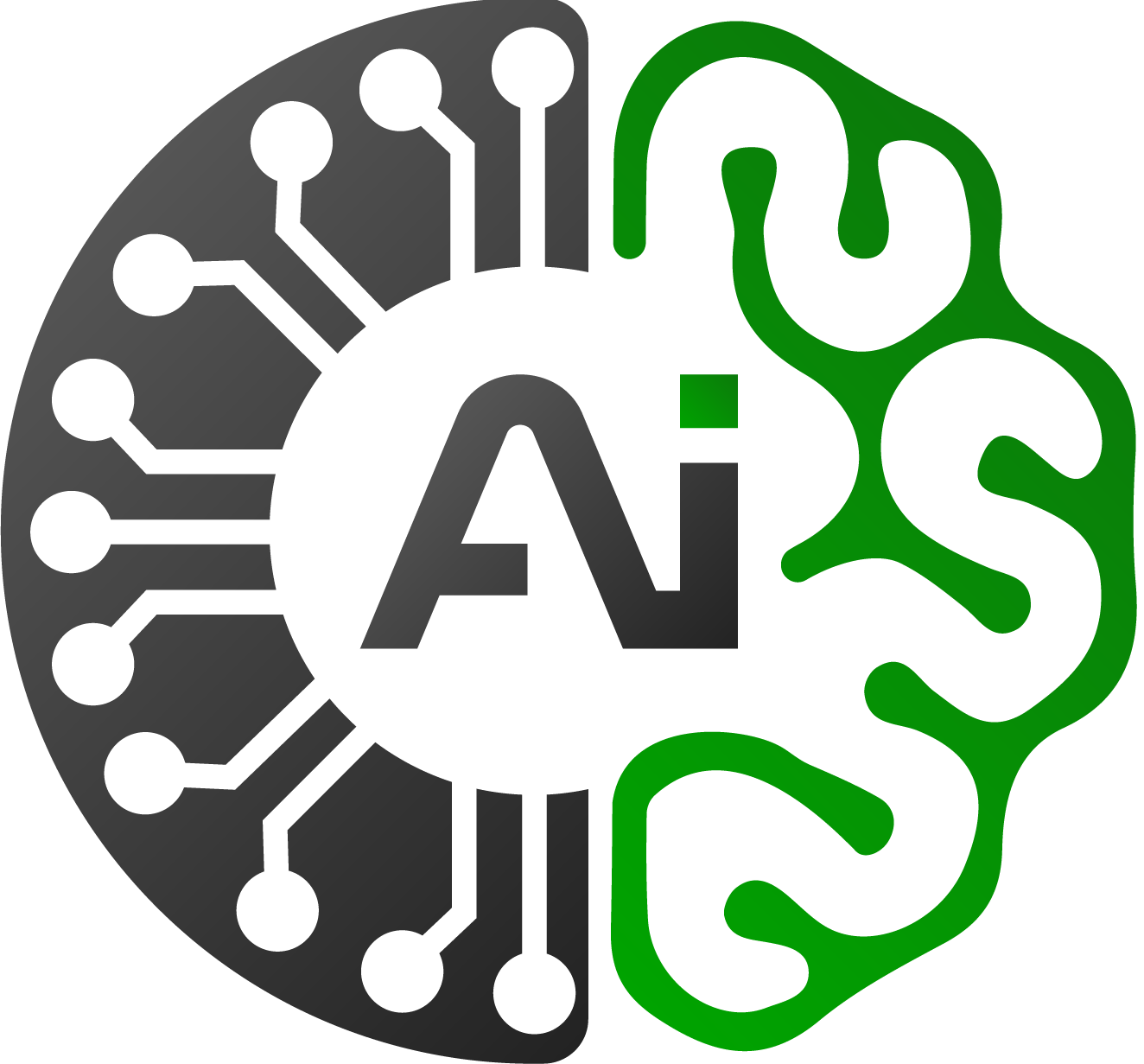
In the rapidly evolving landscape of artificial intelligence (AI), Africa is emerging as a key player.
With its unique blend of cultures, traditions, and challenges, the continent offers a distinct perspective on harnessing the power of AI.
But how can businesses and organizations in Africa succeed with AI while keeping cultural aspects in mind? This free guide aims to answer that question.
From Nigeria to Kenya, South Africa to Ghana, AI is making waves across Africa, transforming industries and improving lives.
However, successful implementation requires an understanding of the local context, values, and customs.
This guide provides valuable insights into navigating the cultural intricacies of African markets while leveraging AI technologies.
The guide covers topics such as ethical considerations, cultural adaptation, and overcoming barriers to AI adoption in Africa.
Whether you’re a business leader, entrepreneur, or AI enthusiast, this resource will equip you with the knowledge and strategies needed to navigate the intersection between AI and culture in Africa.
Unlock the potential of AI in Africa and discover how to succeed with culture in mind. Read the free guide now and stay ahead of the AI curve on one of the world’s most vibrant and dynamic continents.
Understanding the Cultural Context in Africa
Africa is a continent rich in diversity, with over 2,000 languages and countless cultural traditions. This cultural richness presents both opportunities and challenges for AI adoption. Here are some key aspects of the African context to consider:
- Communal Values: Many African cultures emphasize collectivism and community well-being over individual gain. AI solutions should be designed to benefit the larger community, not just a select few.
- Respect for Elders and Ancestral Knowledge: Traditional knowledge and the wisdom of elders hold a significant place in many African cultures. AI should complement, not replace, these established knowledge systems.
- Adaptability and Resourcefulness: Africans have a strong tradition of adapting to challenging circumstances. AI solutions should be adaptable and flexible enough to address the continent’s unique needs.
- Importance of Storytelling: Storytelling is a powerful tool for communication and knowledge transmission in Africa. AI applications that leverage storytelling techniques can be more engaging and culturally relevant.
The Role of AI in Driving Development in Africa
Despite its challenges, Africa presents a fertile ground for AI innovation. Here’s how AI can contribute to the continent’s development:
- Precision Agriculture: AI can analyze weather patterns, soil conditions, and historical data to optimize crop yields and improve food security. (AI in Africa)
- Financial Inclusion: AI-powered mobile banking and microloans can reach unbanked populations, promoting financial inclusion and economic growth. (AI in Africa)
- Healthcare Delivery: AI can analyze medical images, diagnose diseases, and predict outbreaks, leading to improved healthcare delivery in resource-scarce settings. (AI in Africa)
- Education and Training: AI-powered personalized learning platforms can adapt to individual learning styles and improve educational outcomes. (AI in Africa)
- Environmental Sustainability: AI can monitor deforestation, predict natural disasters, and optimize resource management for a sustainable future. (AI in Africa)
Challenges and Opportunities for AI Adoption in Africa
While the potential of AI in Africa is vast, there are also challenges to consider:
- Limited Infrastructure: Access to reliable internet connectivity and computing power remains a hurdle in many parts of Africa.
- Data Privacy Concerns: The ethical collection and use of data are crucial considerations in AI development and deployment.
- Lack of Skilled Talent: Building a skilled workforce in AI development and data science is crucial for long-term AI success.
- Affordability and Accessibility: AI solutions need to be affordable and accessible for small and medium-sized enterprises (SMEs) across Africa.
However, these challenges can be transformed into opportunities:
- Developing Low-Bandwidth AI Solutions: AI solutions designed for limited-bandwidth environments can expand reach and accessibility.
- Promoting Open Data Initiatives: Fostering open data initiatives can encourage African data-driven innovation.
- Building Inclusive AI Education Programs: Investing in AI education programs can empower local communities to participate in the AI revolution.
- Promoting Responsible AI Development: Developing ethical AI frameworks and promoting responsible AI practices is essential to building trust and acceptance.
Case Studies of Successful AI Projects in Africa
Several successful AI projects in Africa demonstrate the power of AI in addressing real-world challenges:
- Precision Agriculture in Kenya: ILRI (International Livestock Research Institute) uses AI to monitor pasture health and predict livestock disease outbreaks in Kenya, helping pastoral communities manage their herds effectively. (AI in Africa)
- Financial Inclusion in Nigeria: BarterPay, a Nigerian fintech startup, utilizes AI to assess creditworthiness and offer micro-loans to unbanked individuals and small businesses. (AI in Africa)
- Disease Diagnosis in South Africa: Insilico Medicine, a South African AI company, developed an AI-powered platform that analyzes medical images for a faster and more accurate diagnosis of tuberculosis. (AI in Africa)
- Education Technology in Rwanda: Ubongo, a Rwandan education technology company, uses AI to personalize learning experiences and improve educational outcomes for students in rural areas. (AI in Africa)
- Environmental Monitoring in Ghana: The World Cocoa Foundation leverages AI to monitor cocoa farms in Ghana, helping to combat deforestation and ensure sustainable cocoa production. (AI in Africa)
These examples showcase the diverse applications of AI in Africa and its potential to address a wide range of challenges faced by the continent.
Building an Inclusive AI Ecosystem in Africa
Building a thriving AI ecosystem in Africa requires a multi-pronged approach:
- Supporting Innovation Hubs: Encouraging the development of innovation hubs across Africa can foster local AI research and development.
- Promoting Collaboration: Collaboration between governments, academia, and the private sector is crucial for driving AI innovation in Africa.
- Investing in AI Infrastructure: Upgrading internet infrastructure and expanding access to computing power are essential for wider AI adoption.
- Empowering Women in AI: Investing in programs that encourage women to pursue careers in AI can unlock the full potential of the African talent pool.
By fostering a collaborative and inclusive environment, Africa can build a robust AI ecosystem that benefits all stakeholders.
Ethical Considerations in AI Development and Deployment in Africa
The ethical development and deployment of AI are critical considerations in Africa. Here are some key areas to focus on:
- Bias and Fairness: AI algorithms should be trained on diverse datasets to avoid perpetuating existing biases.
- Transparency and Explainability: Users should understand how AI systems make decisions, especially when it impact their lives.
- Data Privacy and Security: Robust data privacy frameworks are essential to protect the personal information of African citizens.
By prioritizing ethical considerations, AI can be a force for good in Africa, promoting transparency, accountability, and social justice.
Government Initiatives and Policies to Support AI in Africa
Several African governments are actively developing policies and initiatives to support AI development. Here are some examples:
- The Nigerian National AI Strategy: This strategy aims to position Nigeria as a leader in AI innovation in Africa.
- The South African AI Strategy: This strategy focuses on using AI to address key national challenges in areas like healthcare and education.
- The Rwandan AI for Life Initiative: This initiative promotes the use of AI for social development in Rwanda.
These government initiatives demonstrate a growing commitment to harnessing the power of AI for Africa’s benefit.
Resources for AI Education and Training in Africa
Building a skilled workforce in AI is crucial for Africa’s long-term success in this field. Here are some resources for AI education and training:
- Cognitive AI Technologies Ltd. A prominent African-based company offering professional training programs in AI for Business Executives, Government Agencies, Corporate Management
- The African Institute for Mathematical Sciences (AIMS): AIMS offers AI training programs for African researchers and developers.
- The DeepLearning.AI Specialization: This online program from deeplearning.ai provides a comprehensive introduction to deep learning and AI.
- The Google AI for Africa Challenge: This annual challenge encourages African developers to build innovative AI solutions.
By investing in AI education and training, Africa can create a future-ready workforce equipped to lead in the AI revolution.
Conclusion: Harnessing the Power of AI While Preserving Cultural Values in Africa
AI has the potential to transform Africa, tackling its challenges and propelling the continent towards a brighter future.
However, it is crucial to ensure that AI development and deployment are culturally sensitive and ethically sound.
By understanding the African context, addressing ethical concerns, and building an inclusive AI ecosystem, Africa can harness the power of AI while preserving its rich cultural values.
This free guide has provided you with a foundational understanding of AI in Africa. Subscribe to our newsletter for a deeper dive into specific case studies, best practices, and resources to help you navigate the intersection of AI and culture in Africa.
Together, let’s unlock the potential of AI for a more prosperous, equitable, and sustainable future for Africa.
